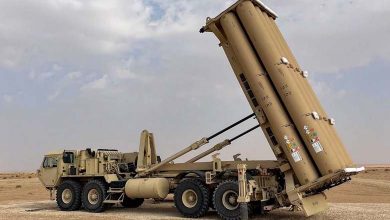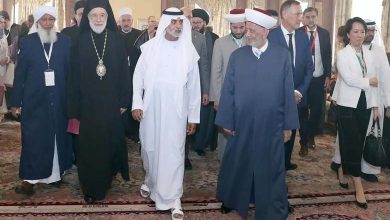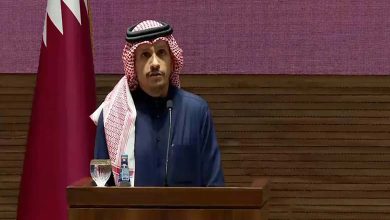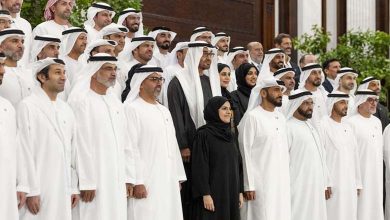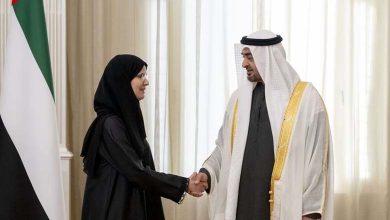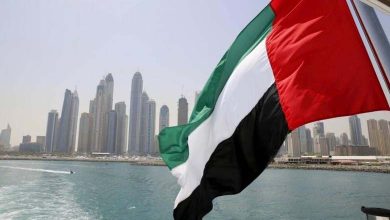The Saudi-Iranian agreement is a new hope to end the war in Yemen

The Geographic Information Systems Center (GIS) highlighted the results of the Saudi-Iranian agreement on the peace process in Yemen in a report titled “New Hope for Ending Yemen’s Civil War?”, in which he said that while fighting continues between the Yemeni government and the Houthis, renewed diplomatic relations between Iran and Saudi Arabia could spark peace talks.
The report added that the restoration of diplomatic relations between Iran and Saudi Arabia, two countries that support both sides in the conflict, has brought renewed hope for an end to the fighting that has claimed the lives of at least 150,000 people since 2014, in one of the world’s worst humanitarian disasters, half of the population needs financial and food aid, yet the fighting continues, driven by a familiar prize: oil.
Box 18 is one of the country’s most productive oil fields, ideally located on the shores of the Red Sea, a region whose gross domestic product is expected to triple from $1.8 trillion to $6.1 trillion by 2050, the report says.
The oil field is barely functioning and security conditions are precarious. It is the main source of revenue for the Yemeni government to support its war efforts against the Houthis, who are backed by Iran. Yemen is only 53rd among countries in terms of oil production, at 70,000 barrels per day.
The report said other parts of the economy are in dire straits, with Yemen importing nearly 90% of its wheat and all its rice, and securing loans, including $300 million from the International Monetary Fund and $1 billion from the Arab Monetary Fund. Still, most of it goes to pay civil servants and military personnel.
“The report stressed that the Houthis fighting the government are profiting from oil revenues, including paying civil servants in the areas they control, without sharing revenue, and they threaten to continue harassing the giant tankers approaching Yemen’s coast, with the ultimate risk that the Houthis will cut off international shipping through the Red Sea.”
Parallel market
Despite its modest production, the Yemeni equation is affecting the global hydrocarbon market, given the involvement of Saudi Arabia, the world’s second-largest oil producer, and gas-rich Iran.
Threats and Auctions
“Although the Houthis have taken control of the capital Sana’a and its institutions, as well as a large share of the northwest, access to fossil fuels remains a challenge, and their latest offensive to capture Marib oil sites has failed, they are not giving up, convinced that this is the right strategy, the report said.”
Threat to oil infrastructure
The report noted that the threat to oil infrastructure is a way to draw the attention of the international community, which is tired of this endless conflict. It is also a strong message from Iranian leaders, a key ally of the Houthis, to remind the international community that they can influence the global hydrocarbon market.
“When Houthi drones struck Saudi Aramco’s Abqaiq factory in 2019, global supply fell by 5 percent and the price of a barrel briefly rose by $2.” “Houthi attacks target port facilities at Roudum, Qena (Shabwah), and al-Shahr (Hadramawt).” Tanks from the Abu Dhabi National Oil Company are also being targeted. “The Al-Samad and Al-Qasif aircraft, loitering munitions, are targeting giant tankers approaching Yemen’s coast controlled by government forces.”
According to security sources, the Houthis have dug two small canals to hide high speed boats that can appear at sea and launch lightning attacks on maritime traffic, and since the ceasefire ended on 22 October, the Houthis have launched two drone attacks on oil terminals in Hadramawt and Shabwah.
The United States, the Arab League, and the European Union have repeatedly condemned this “unacceptable threat to international maritime trade and freedom of navigation,” and global companies, accustomed to deteriorating security environments, are turning a blind eye.
Canada’s Calvale Petroleum has suspended its activities in Hadramaut, and TotalEnergies wants to leave Yemen in an effort to minimize its losses.
Split right
“Since the ceasefire, UN Special Envoy to Yemen Hans Grundberg has been working on a political solution, and his regional tours regularly pass through Oman , which is in contact with all the warring parties.”


